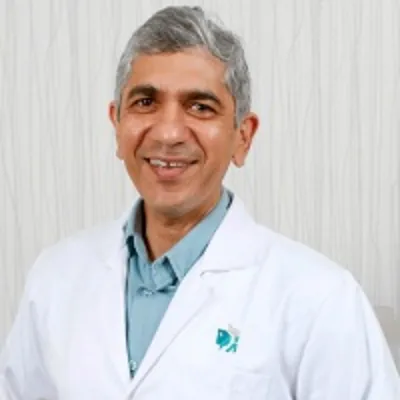Best Cardiologists in Artemis Hospital Gurgaon
 10 December,2025
Read More
10 December,2025
Read More
Starting From: USD 2937 to USD 3917
Elbow Replacement Surgery is affordable in India. The cost of Elbow Replacement Surgery in India lies between USD 2937 to USD 3917. The exact procedure price depends on multiple factors such as the surgeon's experience, type of hospital, severity of the condition, patient's general condition,�etc.
Elbow replacement surgery, also known as total elbow arthroplasty, is a surgical procedure performed to alleviate pain and restore functionality in a damaged or arthritic elbow joint. This procedure involves replacing the damaged joint surfaces with artificial components made of metal and plastic. Elbow replacement is typically recommended for individuals with severe elbow arthritis, traumatic injuries, or failed previous surgeries. The goal is to reduce pain, improve joint mobility, and enhance overall quality of life. While recovery may take several weeks, elbow replacement surgery can significantly improve a patient's ability to perform daily activities with reduced pain and discomfort.
Elbow replacement surgery is a transformative intervention for individuals suffering from debilitating elbow conditions, providing substantial relief from pain and restoring function. While the procedure involves considerations and potential risks, advancements in surgical techniques and prosthetic design have significantly improved outcomes. Individuals considering elbow replacement surgery should engage in thorough discussions with their orthopedic surgeon, understanding the benefits, potential risks, and the commitment required for a successful recovery. With appropriate patient selection and comprehensive postoperative care, elbow replacement surgery offers the prospect of a more active and pain-free life for those affected by severe elbow joint dysfunction.

Head of Department (HOD)
Orthopedic and Joint Replacement Surgeon
Max Smart Super Speciality Hospital, Saket, New Delhi

Senior Director
Orthopedic and Joint Replacement Surgeon
Fortis Memorial Research Institute (FMRI), Gurgaon

Senior Consultant
Orthopedic and Joint Replacement Surgeon
Indraprastha Apollo Hospital, New Delhi


Chairman
Orthopedic and Joint Replacement Surgeon, Spine Surgeon

Consultant
Orthopedic and Joint Replacement Surgeon
Nanavati Super Specialty Hospital, Mumbai
Doctor of Pharmacy
Dr. Deepanshu Siwach is a skilled clinical pharmacist with a Doctor of Pharmacy degree.?He has 4+?years of experience and has worked with thousands of patients. He has been associated with some of the top hospitals, such as Artemis Gurgaon.
Dr. Deepanshu Siwach is a skilled clinical pharmacist with a Doctor of Pharmacy degree.?He has 4+?years of experience and has worked with thousands of patients. He has been associated with some of the top hospitals, such as Artemis Gurgaon....
Director
Orthopedic and Joint Replacement Surgeon
Aakash Healthcare Super Speciality Hospital, Dwarka, New Delhi
Dr. Aashish Chaudhry is amongst the best Orthopedic Surgeons, with over 23 years of experience....
The Art of Effective Communication
 10 December,2025
Read More
10 December,2025
Read More
 09 December,2025
Read More
09 December,2025
Read More
 05 December,2025
Read More
05 December,2025
Read More
 04 December,2025
Read More
04 December,2025
Read More
 27 November,2025
Read More
27 November,2025
Read More
 25 November,2025
Read More
25 November,2025
Read More